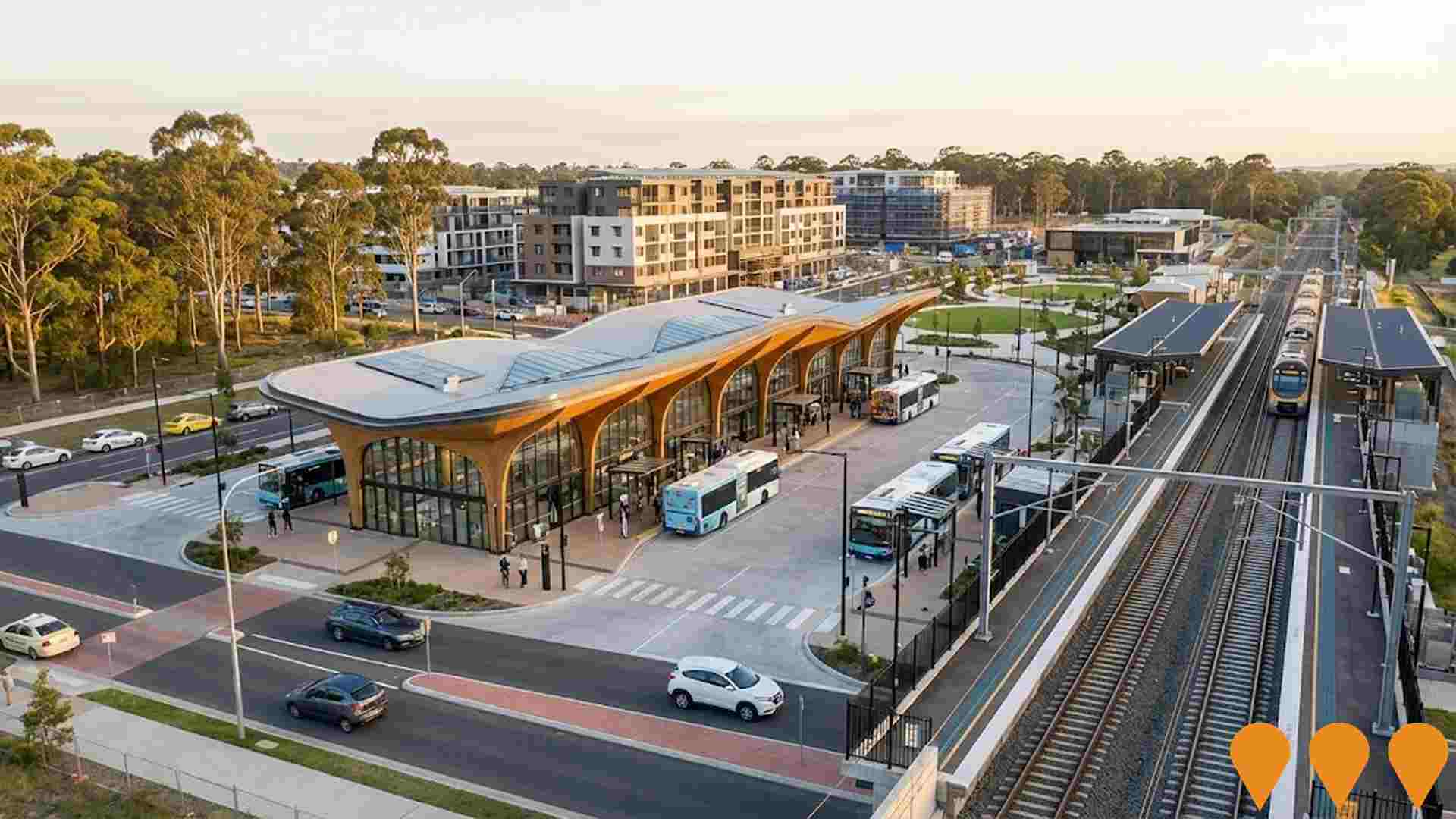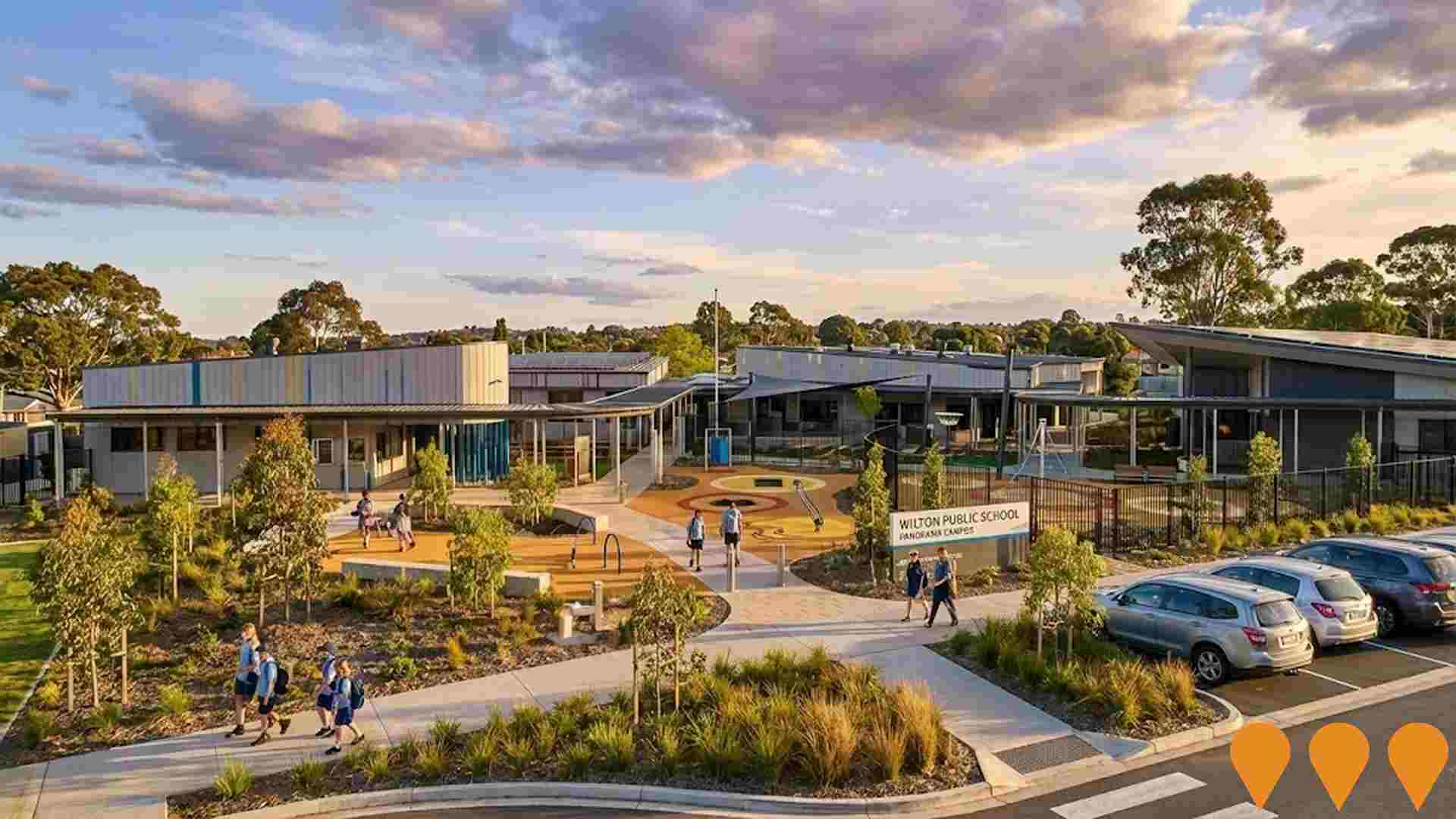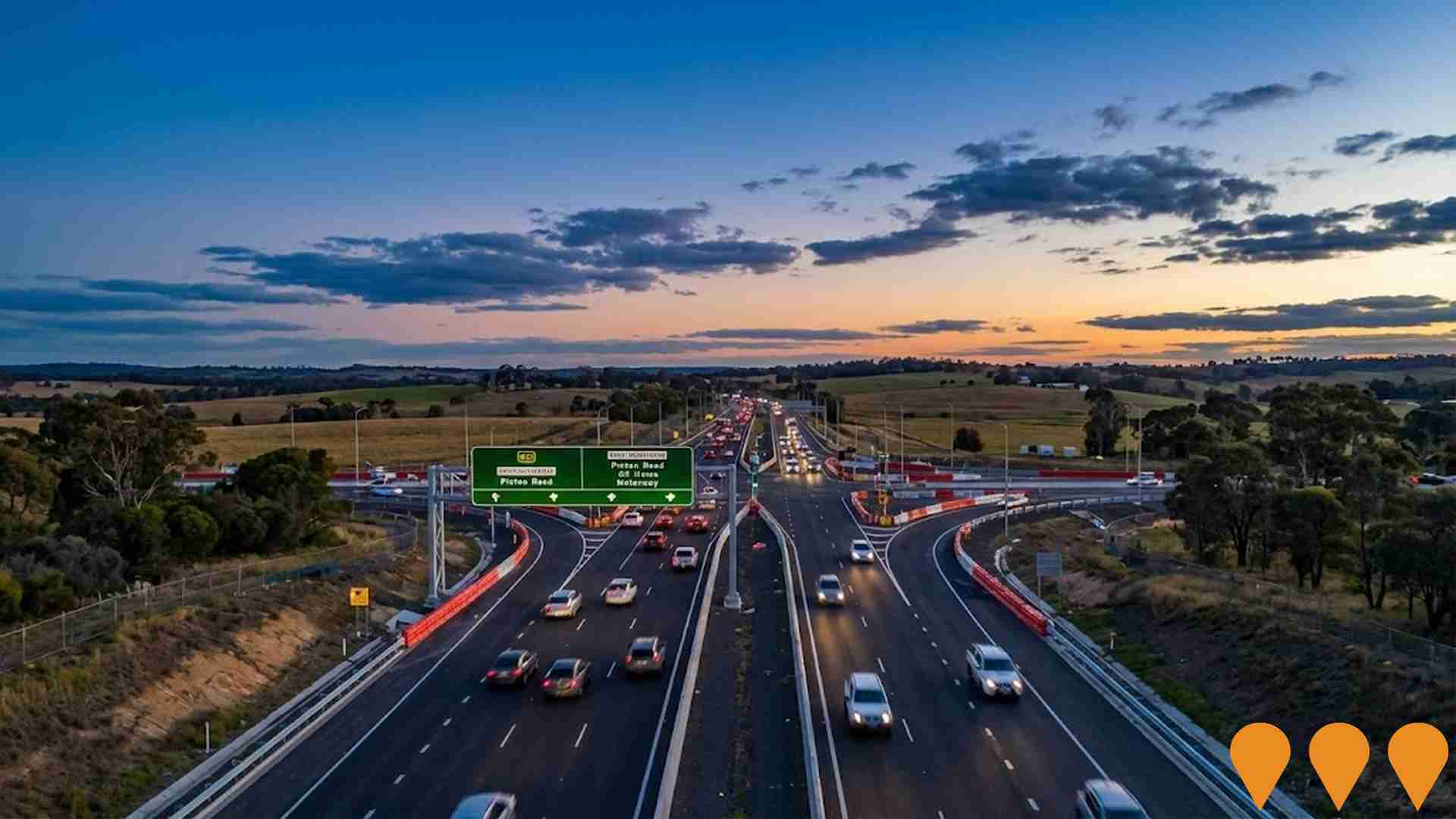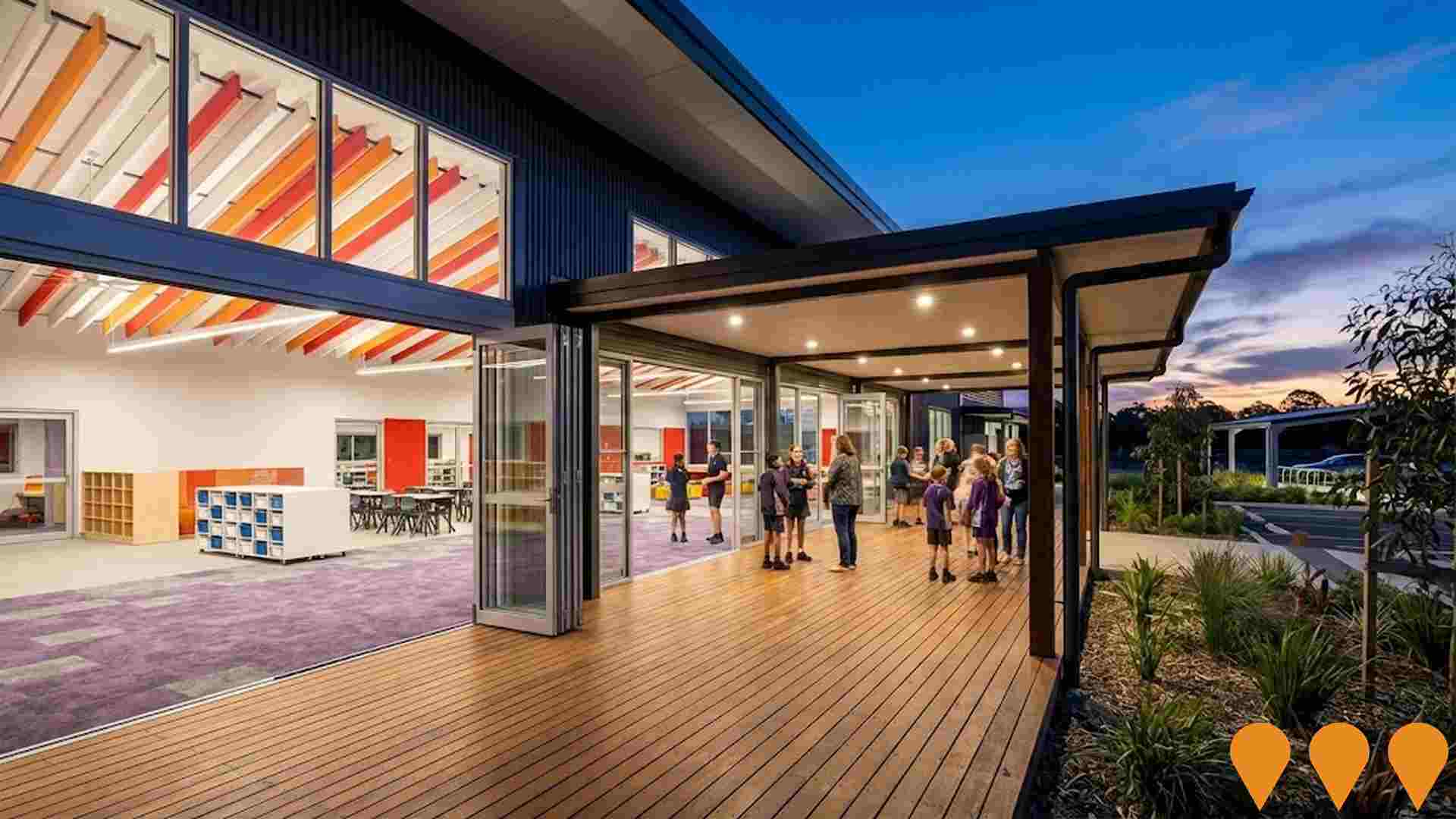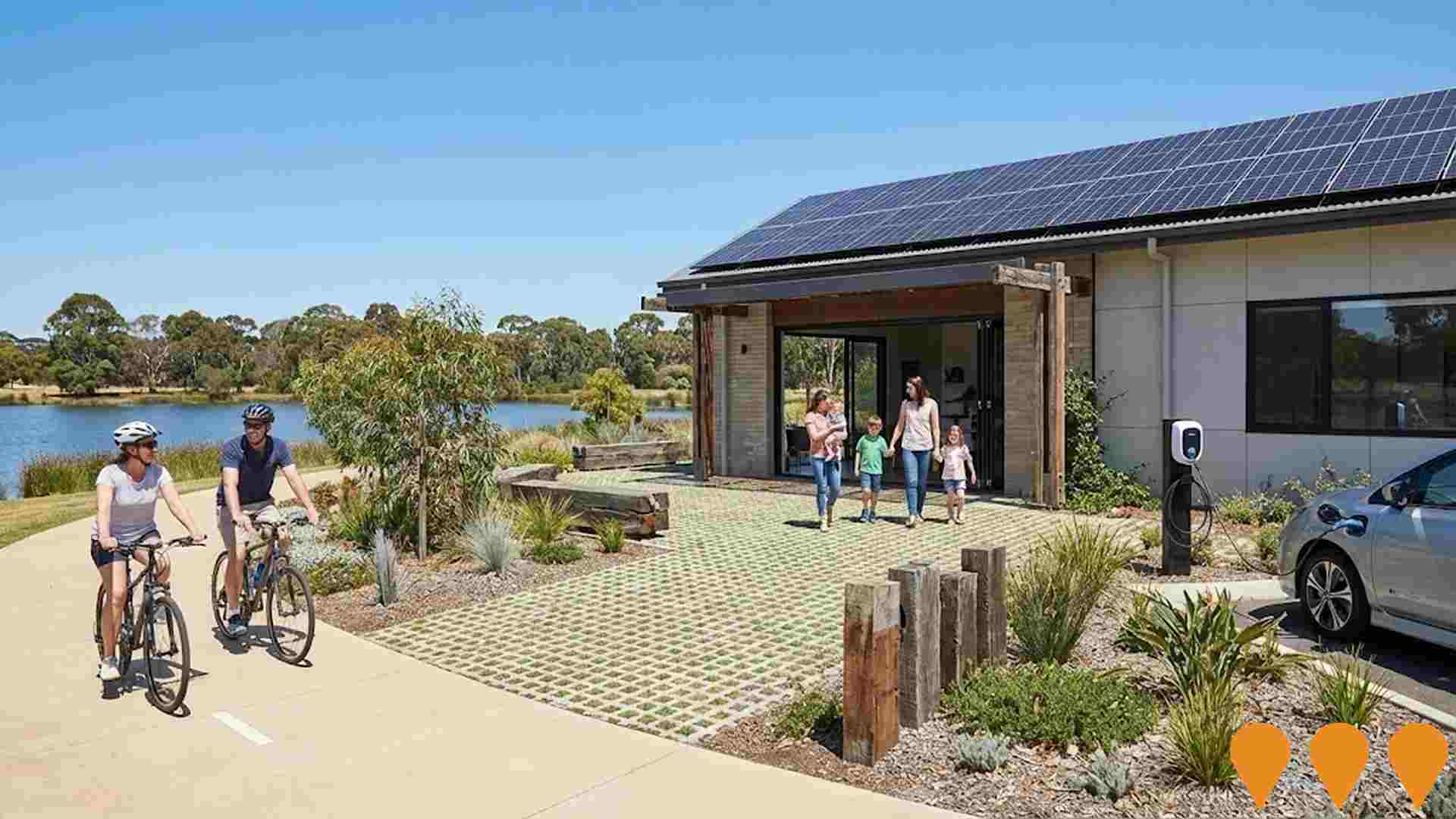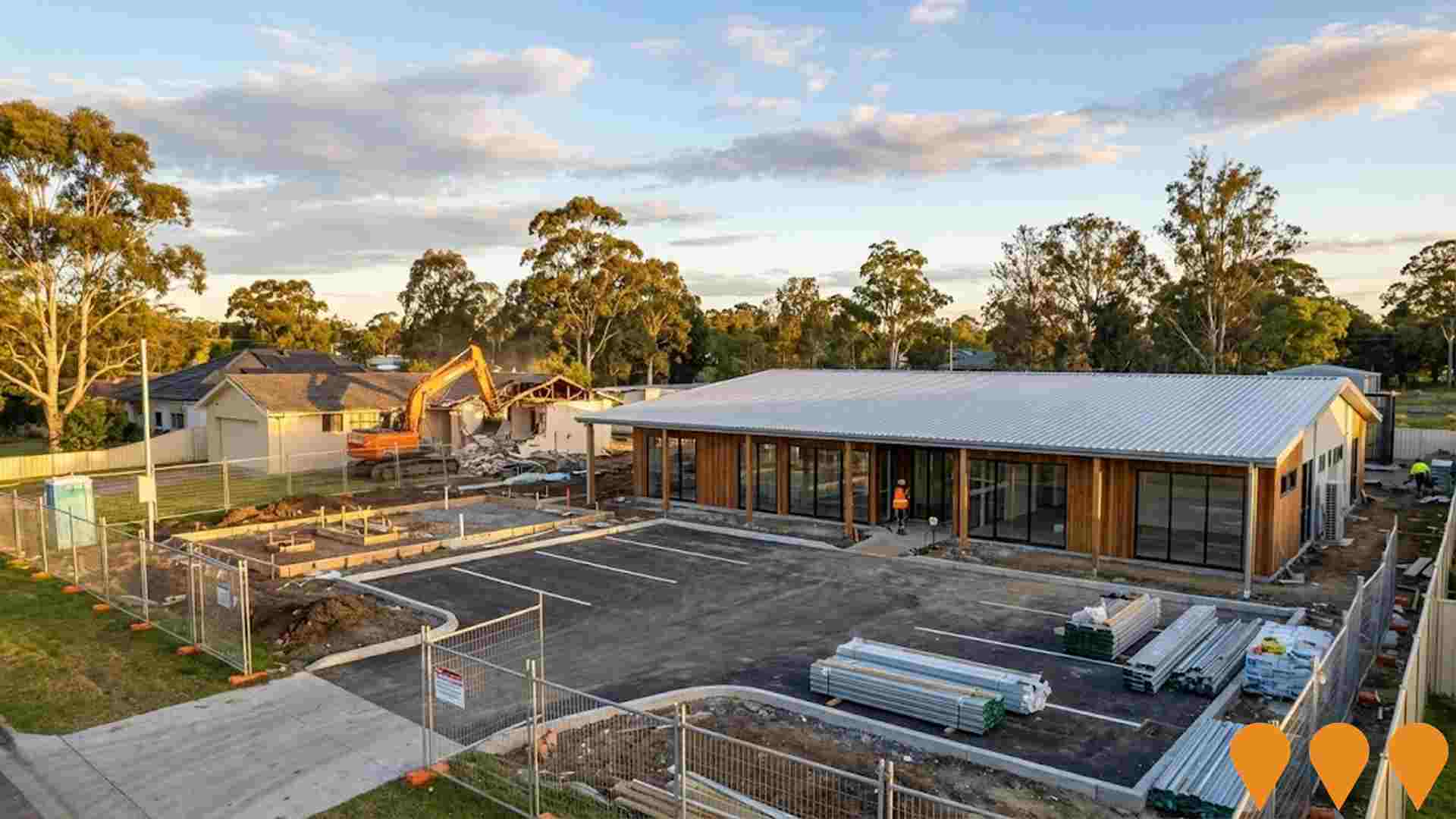Chart Color Schemes
This analysis uses ABS Statistical Areas Level 2 (SA2) boundaries, which can materially differ from Suburbs and Localities (SAL) even when sharing similar names.
SA2 boundaries are defined by the Australian Bureau of Statistics and are designed to represent communities for statistical reporting (e.g., census and ERP).
Suburbs and Localities (SAL) represent commonly-used suburb/locality names (postal-style areas) and may use different geographic boundaries. For comprehensive analysis, consider reviewing both boundary types if available.
est. as @ -- *
ABS ERP | -- people | --
2021 Census | -- people
Sales Activity
Curious about local property values? Filter the chart to assess the volume and appreciation (including resales) trends and regional comparisons, or scroll to the map below view this information at an individual property level.
Find a Recent Sale
Sales Detail
Population
Douglas Park - Appin lies within the top 10% of areas nationally in terms of population growth performance according to AreaSearch analysis of short and medium-term trends
Douglas Park - Appin's population was around 14,980 as of November 2025. This figure reflects an increase of 3,868 people since the 2021 Census, which reported a population of 11,112 people. The growth is inferred from the estimated resident population of 12,532 in June 2024 and an additional 1,740 validated new addresses since the Census date. This results in a density ratio of 51 persons per square kilometer. Douglas Park - Appin's population grew by 34.8% from 2021 to November 2025, exceeding the state growth rate of 6.7%. Interstate migration contributed approximately 61.0% of overall population gains during recent periods.
AreaSearch adopts ABS/Geoscience Australia projections for each SA2 area, released in 2024 with a base year of 2022. For areas not covered by this data, AreaSearch uses NSW State Government's SA2 level projections released in 2022 with a base year of 2021. Growth rates by age group are applied to all areas for the years 2032 to 2041. By 2041, Douglas Park - Appin is projected to grow by 31,621 persons based on the latest annual ERP population numbers, reflecting a total increase of 194.5% over the 17-year period.
Frequently Asked Questions - Population
Development
The level of residential development activity in Douglas Park - Appin was found to be higher than 90% of real estate markets across the country
Douglas Park - Appin has recorded approximately 279 residential properties granted approval annually over the past five financial years, totalling 1,396 homes. As of FY-26204 approvals have been recorded. On average, 1.1 people per year move to the area for each dwelling built between FY-21 and FY-25, indicating balanced supply and demand with stable market conditions. The average expected construction cost value of new homes is $409,000.
In FY-26, $10.8 million in commercial approvals have been registered, reflecting moderate levels of commercial development. Compared to Greater Sydney, Douglas Park - Appin records 55.0% more new home approvals per person. The area's building activity consists of approximately 88.0% standalone homes and 12.0% townhouses or apartments, maintaining its traditional low-density character focused on family homes. With around 32 people per approval, Douglas Park - Appin is a developing area with population forecasts indicating an increase of 29,134 residents by 2041. At current development rates, housing supply may struggle to keep pace with population growth, potentially intensifying buyer competition and supporting price increases.
Population forecasts indicate Douglas Park - Appin will gain 29,134 residents through to 2041 (from the latest AreaSearch quarterly estimate). At current development rates, housing supply may struggle to match population growth, potentially heightening buyer competition and supporting price increases.
Frequently Asked Questions - Development
Infrastructure
Douglas Park - Appin has strong levels of nearby infrastructure activity, ranking in the top 40% nationally
Changes to local infrastructure significantly influence an area's performance. AreaSearch has identified 68 projects likely impacting the area. Key projects include new schools in Panorama and Panorama North Wilton, Bingara Gorge Master Planned Community, and Wilton Greens Estate. The following list details those most relevant.
Professional plan users can use the search below to filter and access additional projects.
INFRASTRUCTURE SEARCH
 Denotes AI-based impression for illustrative purposes only, not to be taken as definitive under any circumstances. Please follow links and conduct other investigations from the project's source for actual imagery. Developers and project owners wishing us to use original imagery please Contact Us and we will do so.
Denotes AI-based impression for illustrative purposes only, not to be taken as definitive under any circumstances. Please follow links and conduct other investigations from the project's source for actual imagery. Developers and project owners wishing us to use original imagery please Contact Us and we will do so.
Frequently Asked Questions - Infrastructure
Wilton Growth Area
The Wilton Growth Area is a NSW Government Priority Growth Area planned to ultimately deliver around 19,000 new homes and support approximately 20,000 jobs over the next 30-40 years. It comprises multiple precincts being progressively rezoned and developed to create a series of connected, sustainable towns with housing diversity, schools, employment lands, open space and supporting infrastructure.
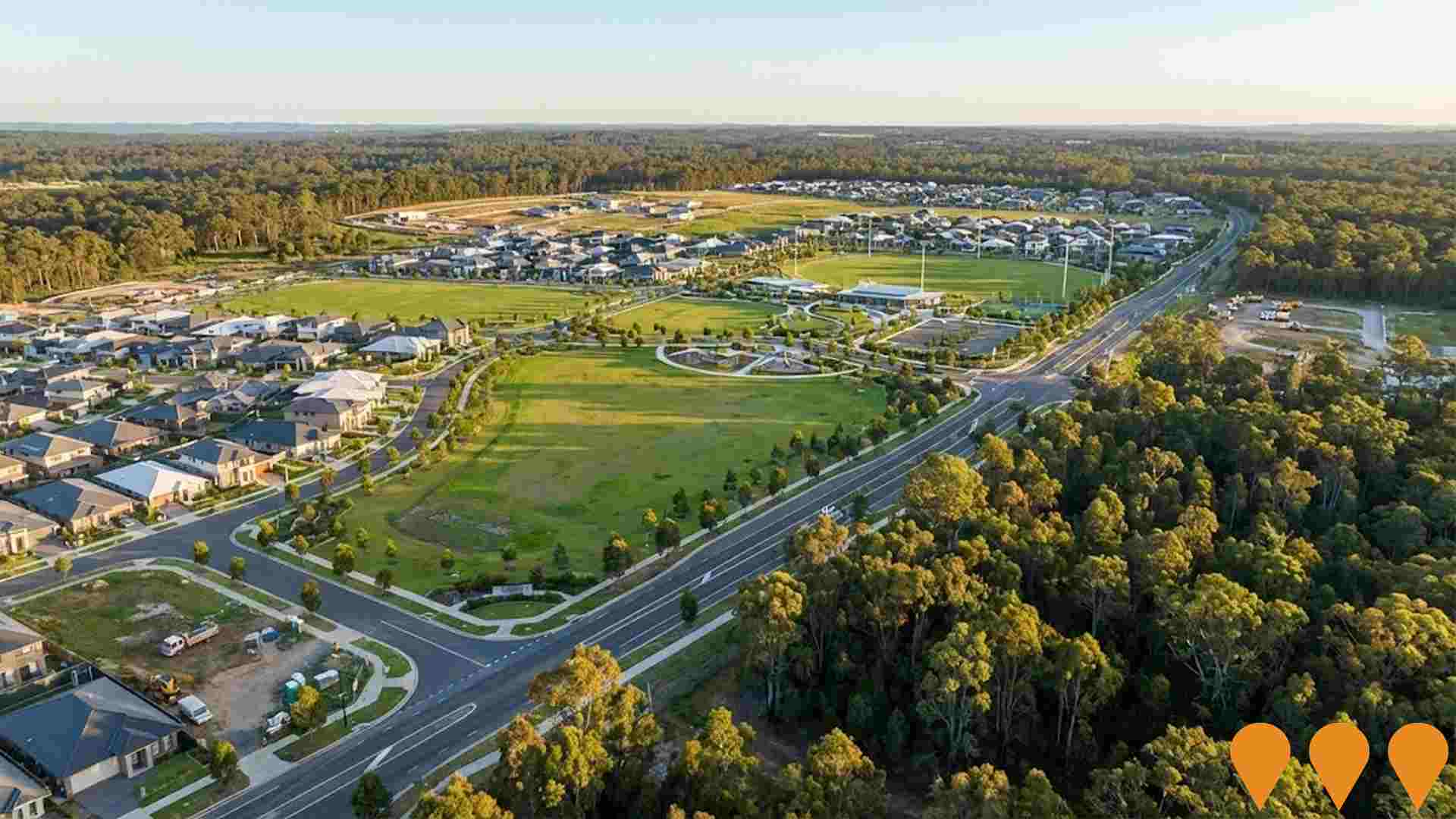
Panorama North Wilton
Landcom's flagship masterplanned community in North Wilton delivering approximately 5,600 homes across 871 hectares. Australia's first 6-Star Green Star Communities rated project. Features 415 ha of conserved environmental land, 52 ha of parks and open space including an 11-ha lake, three future schools (first opening 2027), free community shuttle bus to Macarthur Station, all-electric homes, 10% affordable housing, and net-zero initiatives. Multiple stages under construction with Stage 4 civil works progressing in 2025.
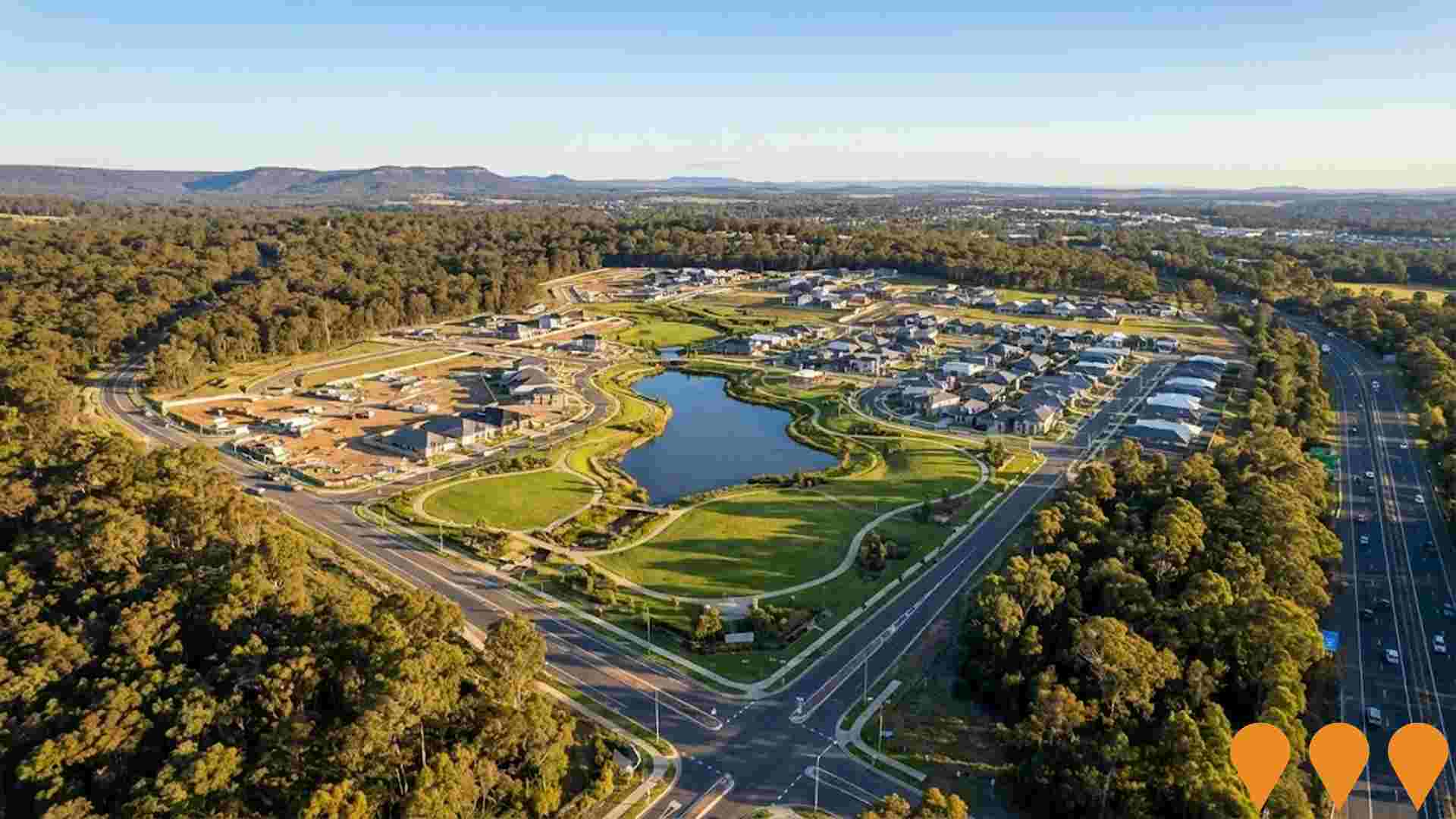
Wilton Greens Estate
Risland Australia's $1.5 billion master-planned community on 433 hectares in Wilton, delivering approximately 3,600 lots for an expected 12,000+ residents. Includes two employment hubs, a neighbourhood centre, seven parks, extensive bike and walking paths, and 8.5 hectares of open space. Walker Corporation is the delivery partner. Construction is well underway with multiple stages released and civil works progressing across the site as of late 2025.
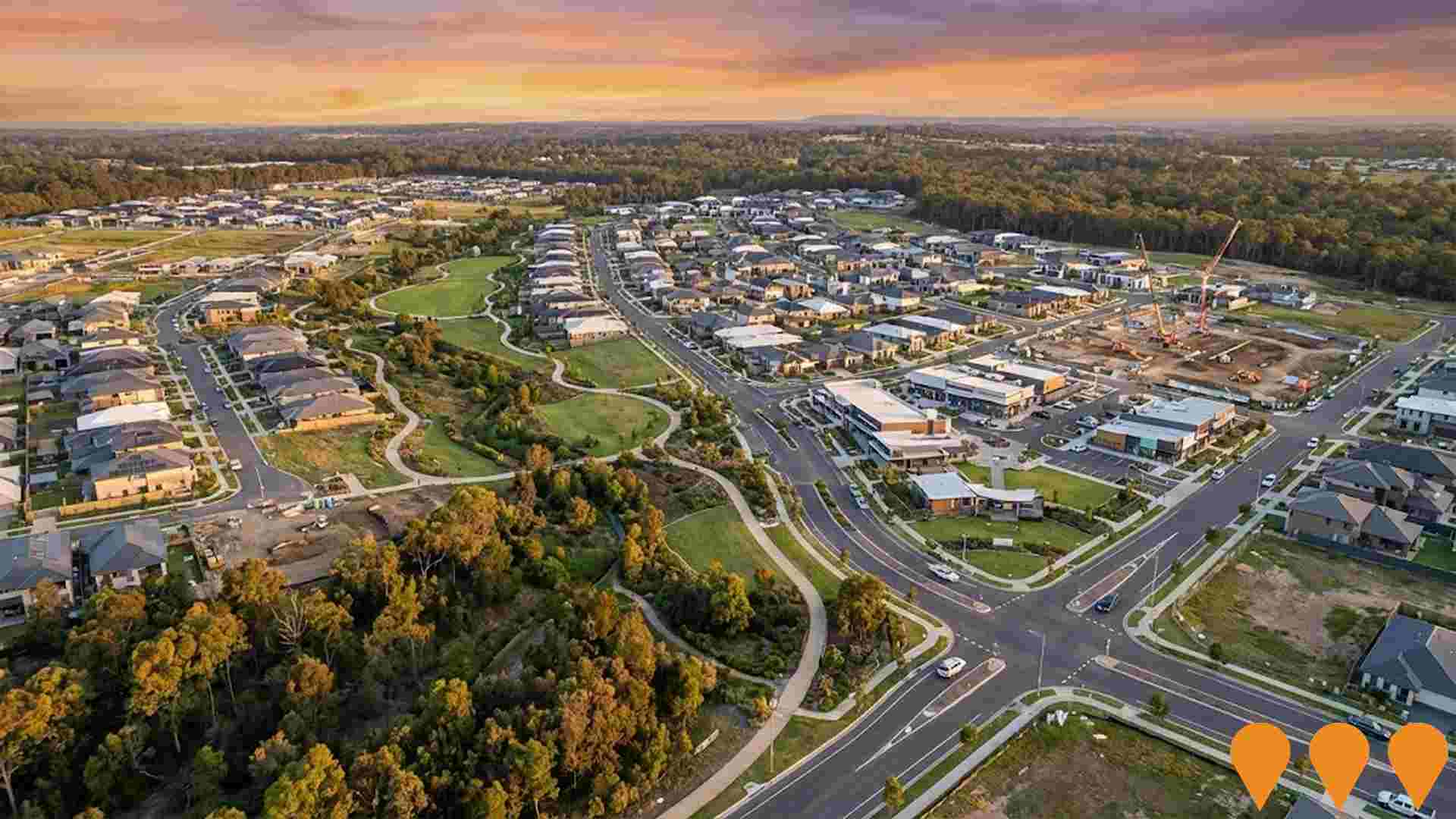
Wilton Town Centre Precinct
State-led rezoning of the Wilton Town Centre Precinct was finalised and became effective 30 June 2023. The precinct will deliver a major retail and commercial centre, approximately 1,600 new dwellings, a new public primary school, significant public open space, a central bus interchange and protection of approximately 37 ha of environmentally sensitive land. Master planning led by Wollondilly Shire Council is ongoing, along with negotiation of a State Voluntary Planning Agreement.
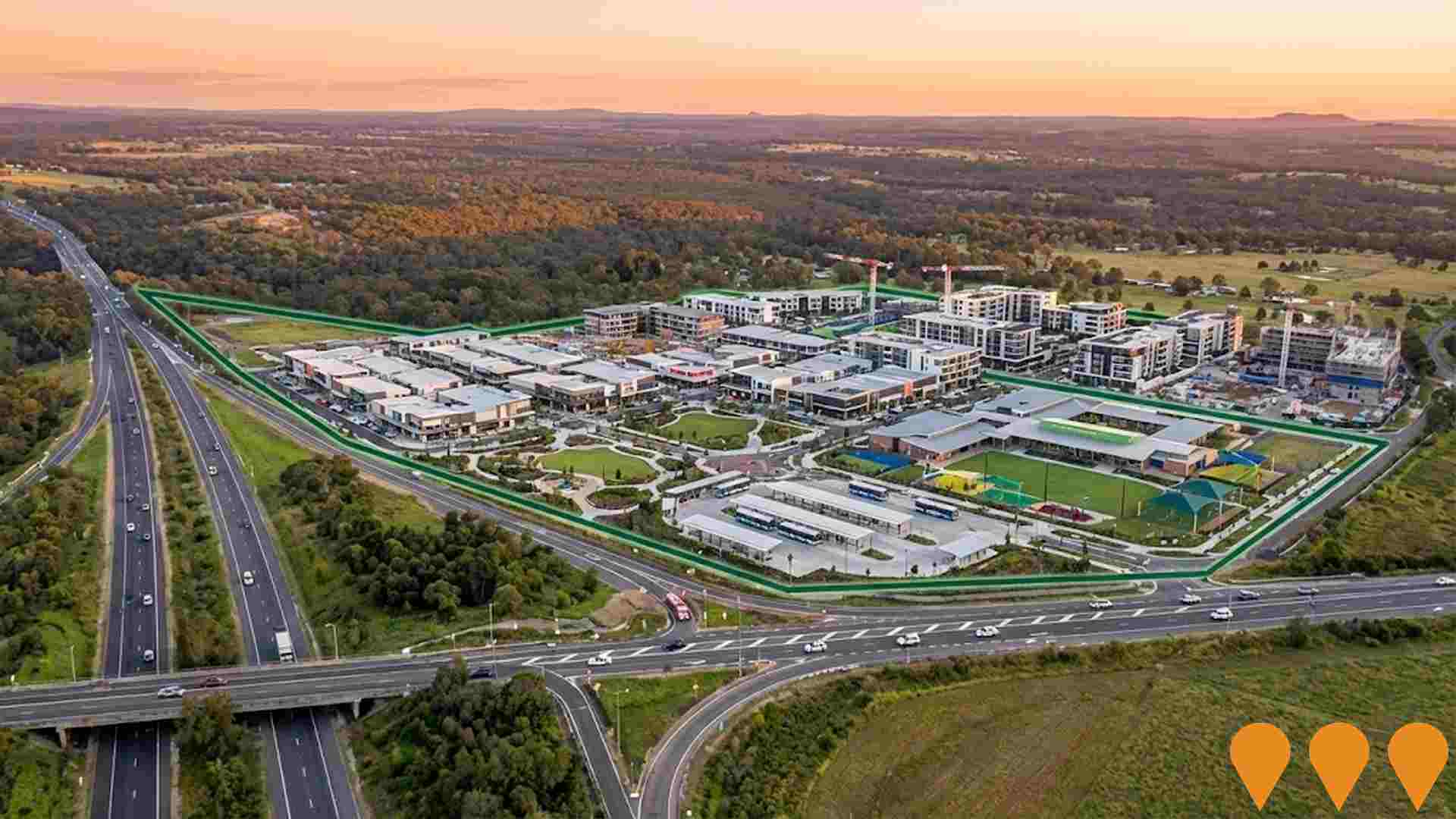
Bingara Gorge Master Planned Community
Premium 450-hectare master-planned community by Metro Property Group (acquired from Lendlease in 2021) delivering 1,800 homes for approximately 3,500 residents when completed. Features world-class 18-hole championship golf course designed by Graham Marsh, Pulse Fitness Club with swimming pools and tennis courts, Wilton Public School, $50 million Country Club (approved 2024), retail centre, childcare, and over 200 hectares of open space including 120 hectares of protected bushland. Located in the heart of Wilton Growth Area with excellent connectivity to M5 and Hume Highway.
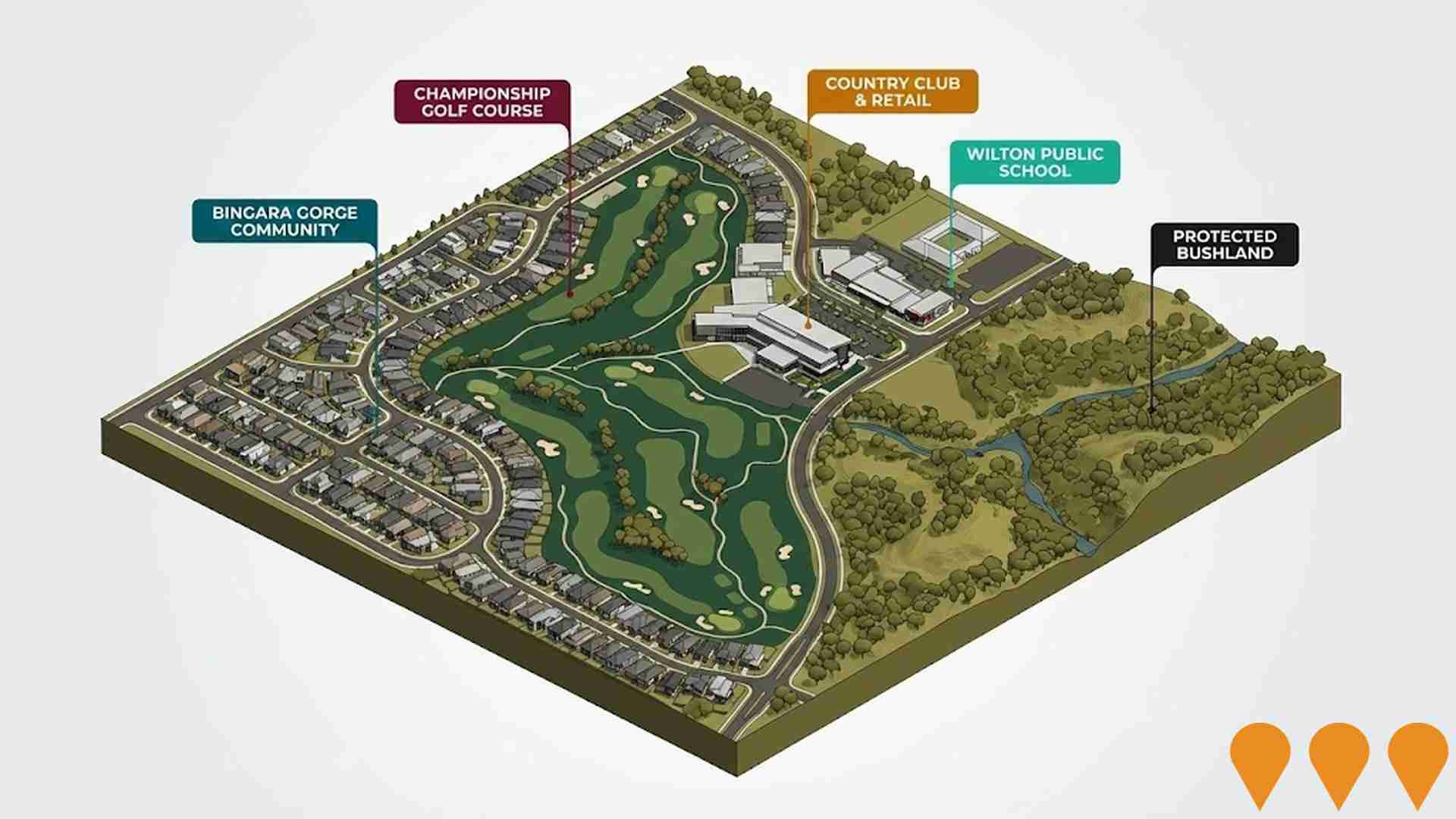
Wilton Growth Area - North Wilton Precinct
Large-scale residential release area delivering thousands of new homes as part of the broader Wilton Growth Area, with multiple developers active and first residents already moved in.
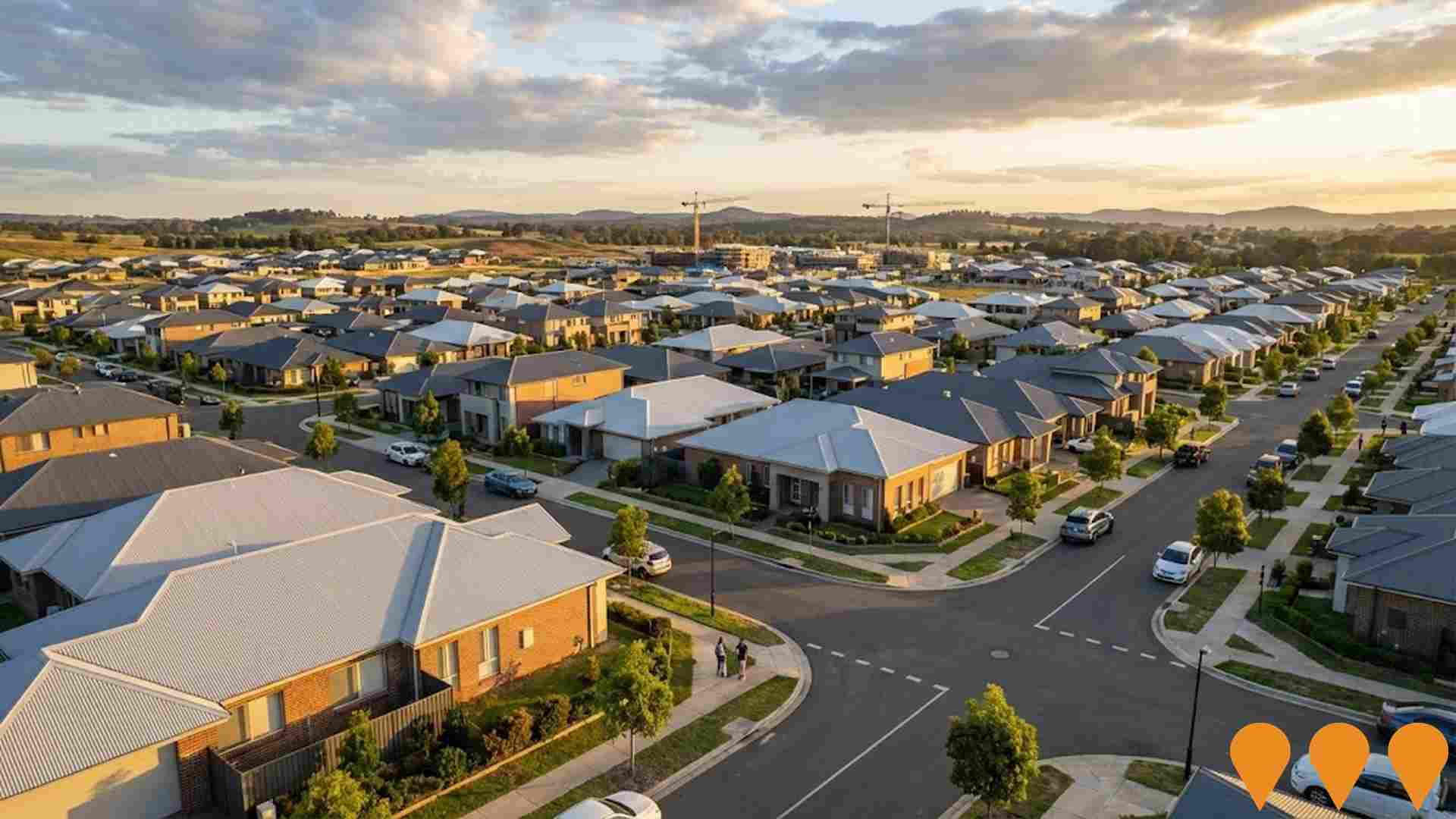
Hume Highway and Picton Road Interchange Upgrade
Upgrade of the M31 Hume Motorway and Picton Road interchange at Wilton (as part of the broader Picton Road upgrade). Works include converting the interchange to a diverging diamond layout, additional lanes at ramps, and corridor widening to support the Wilton Growth Area and improve safety and freight efficiency.
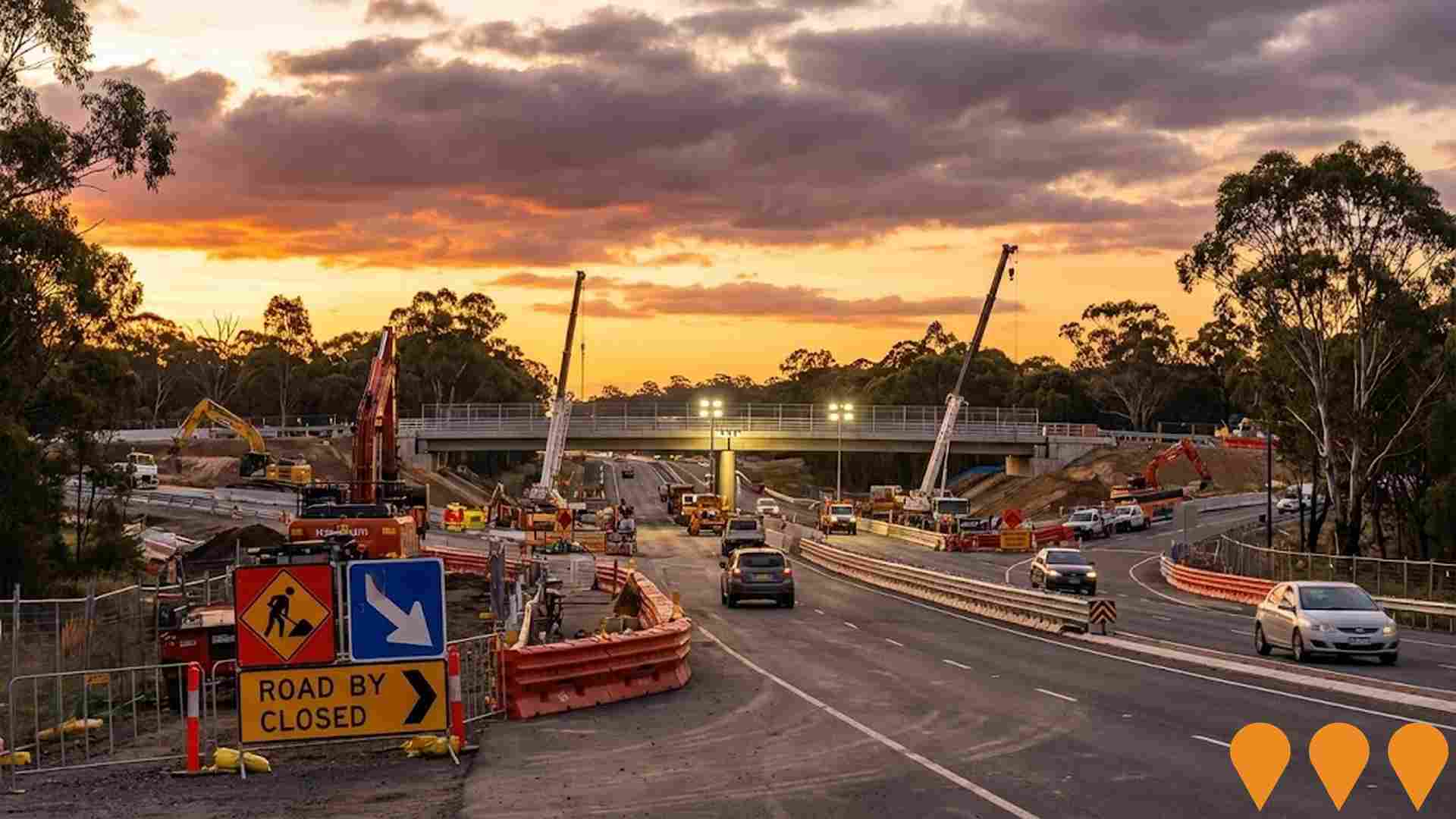
Douglas Park Memorial Park
Multi-denominational cemetery and memorial park proposed on rural land near Douglas Park township. The concept plan provides approximately 37,000 burial plots to be delivered over seven stages (about 15,000 in Stage 1), with chapel (circa 230 seats), caretaker and administration buildings with cafe, remembrance gardens and open space, internal roads and paths, and about 130 car parks. A crematorium is proposed for later stages. The proponent states more than 95% of existing trees would be retained and vegetation buffers increased.
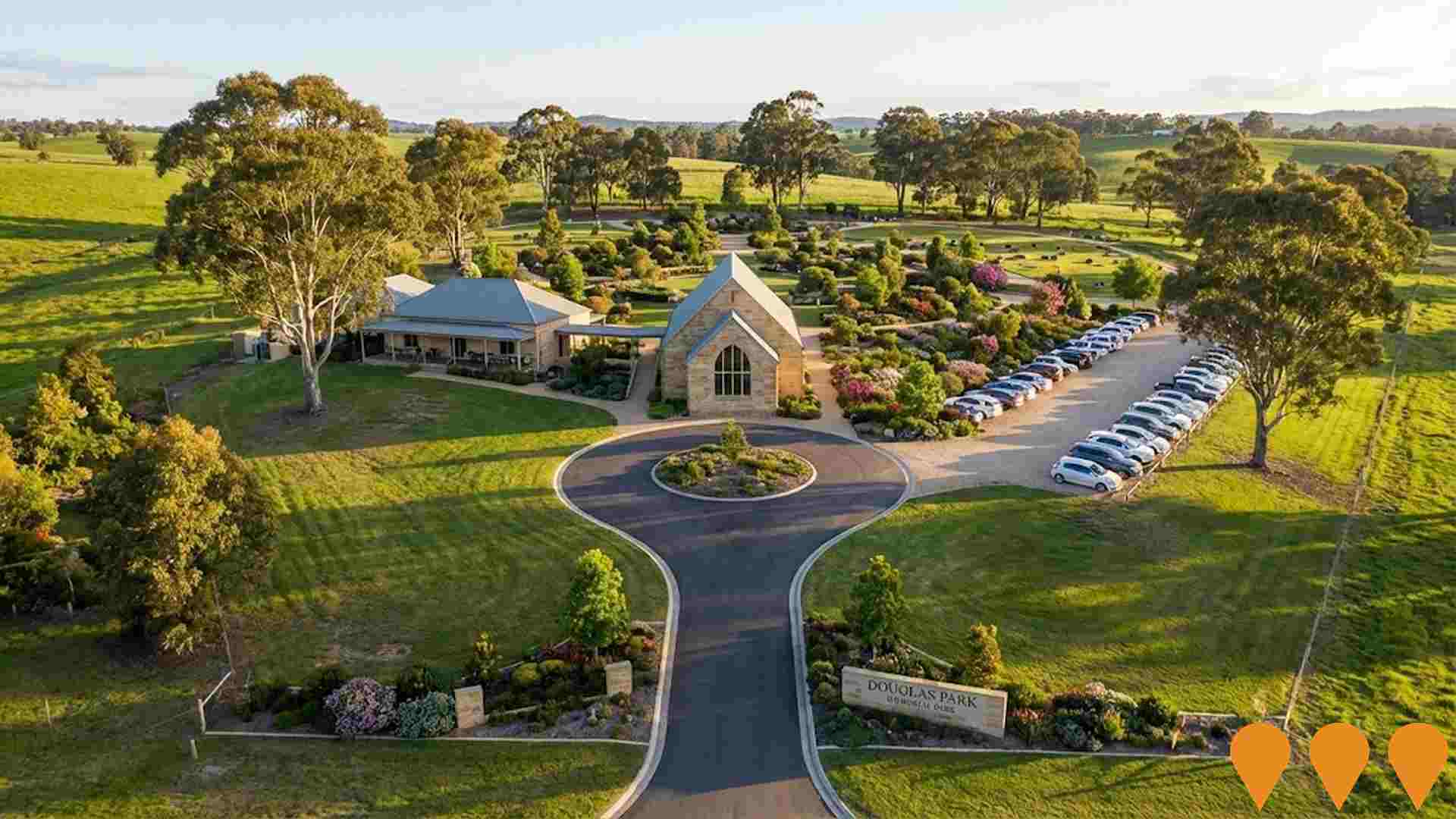
Employment
AreaSearch analysis of employment trends sees Douglas Park - Appin performing better than 90% of local markets assessed across Australia
Douglas Park - Appin has a skilled workforce with notable representation in the construction sector. Its unemployment rate was 1.5% as of September 2025, lower than Greater Sydney's 4.2%.
Employment growth over the past year was estimated at 5.9%. In September 2025, 7,423 residents were employed, with an unemployment rate of 2.7%, below Greater Sydney's rate, and workforce participation at 65.1% compared to Greater Sydney's 60.0%. Key industries include construction (employment levels at 1.9 times the regional average), education & training, and health care & social assistance. Professional & technical services were under-represented with only 5.1% of the workforce compared to Greater Sydney's 11.5%.
Employment opportunities locally appear limited based on Census data comparisons. Between September 2024 and September 2025, employment increased by 5.9%, labour force by 6.1%, resulting in a slight rise in unemployment (0.2 percentage points). Greater Sydney experienced employment growth of 2.1% during this period. State-level data from NSW to 25-Nov-25 shows employment contracted by 0.03%, with the state unemployment rate at 3.9%. Nationally, the unemployment rate was 4.3%. Jobs and Skills Australia's national employment forecasts for May-25 project overall growth of 6.6% over five years and 13.7% over ten years. Applying these projections to Douglas Park - Appin's industry mix suggests local employment could increase by 6.0% over five years and 12.5% over ten years, though this is a simplified extrapolation for illustrative purposes only.
Frequently Asked Questions - Employment
Income
Income metrics indicate excellent economic conditions, with the area achieving higher performance than 75% of national locations assessed by AreaSearch
AreaSearch released postcode level ATO data for financial year 2022. The median income among taxpayers in Douglas Park - Appin SA2 was $56,041, with an average of $69,193. This is above the national average. Greater Sydney's median income was $56,994 and its average was $80,856. Based on Wage Price Index growth of 12.61% since financial year 2022, current estimates for Douglas Park - Appin SA2 would be approximately $63,108 (median) and $77,918 (average) as of September 2025. Census data shows household incomes rank at the 90th percentile ($2,484 weekly). The earnings profile indicates that 31.5% of individuals earn between $1,500 - 2,999 per week (4,718 individuals). This pattern is similar to surrounding regions where 30.9% occupy this earnings range. Douglas Park - Appin SA2 demonstrates affluence with 39.3% earning over $3,000 per week. High housing costs consume 16.1% of income, but strong earnings place disposable income at the 89th percentile. The area's SEIFA income ranking places it in the 7th decile.
Frequently Asked Questions - Income
Housing
Douglas Park - Appin is characterized by a predominantly suburban housing profile, with ownership patterns similar to the broader region
Douglas Park - Appin's dwelling structure, as per the latest Census, was 96.9% houses and 3.1% other dwellings (semi-detached, apartments, 'other' dwellings), compared to Sydney metro's 94.1% houses and 5.9% other dwellings. Home ownership in Douglas Park - Appin stood at 30.8%, with mortgaged dwellings at 56.2% and rented ones at 13.0%. The median monthly mortgage repayment was $2,600, above Sydney metro's average of $2,318, while the median weekly rent was $490, higher than Sydney metro's $415. Nationally, Douglas Park - Appin's mortgage repayments were significantly higher at $2,600 compared to Australia's average of $1,863, and rents were substantially above the national figure of $375.
Frequently Asked Questions - Housing
Household Composition
Douglas Park - Appin features high concentrations of family households, with a higher-than-average median household size
Family households account for 85.6% of all households, including 49.5% couples with children, 27.3% couples without children, and 8.1% single parent families. Non-family households constitute the remaining 14.4%, with lone person households at 13.3% and group households comprising 1.2%. The median household size is 3.2 people, larger than the Greater Sydney average of 2.9.
Frequently Asked Questions - Households
Local Schools & Education
Educational attainment in Douglas Park - Appin aligns closely with national averages, showing typical qualification patterns and performance metrics
The area's university qualification rate is 18.7%, significantly lower than Greater Sydney's average of 38.0%. Bachelor degrees are the most prevalent at 13.6%, followed by postgraduate qualifications (3.5%) and graduate diplomas (1.6%). Vocational credentials are common, with 45.8% of residents aged 15+ holding them, including advanced diplomas (12.4%) and certificates (33.4%). Educational participation is high at 32.6%, with 12.9% in primary education, 8.5% in secondary education, and 3.7% pursuing tertiary education.
Educational participation is notably high, with 32.6% of residents currently enrolled in formal education. This includes 12.9% in primary education, 8.5% in secondary education, and 3.7% pursuing tertiary education.
Frequently Asked Questions - Education
Schools Detail
Nearby Services & Amenities
Transport
Transport servicing is moderate compared to other areas nationally based on assessment of service frequency, route connectivity and accessibility
Douglas Park - Appin has 193 active public transport stops. These are a mix of train and bus services. There are 66 individual routes operating, providing a total of 2,988 weekly passenger trips.
Transport accessibility is rated as good, with residents on average located 230 meters from the nearest stop. Services run at an average frequency of 426 trips per day across all routes, which equates to approximately 15 weekly trips per individual stop.
Frequently Asked Questions - Transport
Transport Stops Detail
Health
The level of general health in Douglas Park - Appin is notably higher than the national average with prevalence of common health conditions low among the general population though higher than the nation's average across older, at risk cohorts
Douglas Park - Appin shows better health outcomes with a lower prevalence of common conditions among its general population compared to national averages.
However, older and at-risk cohorts have higher-than-average rates. Approximately 54% (~8,044 people) of the total population has private health cover. The most prevalent medical conditions are arthritis (affecting 8.2% of residents) and asthma (7.5%). 72.0% of residents report being completely free of medical ailments, compared to 68.7% in Greater Sydney. The area has a lower percentage of seniors aged 65 and over at 15.1% (2,258 people) than the 16.5% in Greater Sydney. Health outcomes among seniors require more attention than those of the broader population.
Frequently Asked Questions - Health
Cultural Diversity
Douglas Park - Appin is considerably less culturally diverse than average when assessed alongside AreaSearch's national rankings for language and cultural background related metrics
Douglas Park-Appin showed cultural diversity below average, with 88.0% of residents born in Australia, 91.4% being citizens, and 94.3% speaking English only at home. Christianity was the dominant religion, comprising 65.1%, compared to 63.0% across Greater Sydney. Ancestry revealed Australian as the top group (32.6%), followed by English (28.7%) and Irish (7.2%).
Notably, Maltese were overrepresented at 1.9% (vs regional 2.3%), Serbian at 0.5% (vs 0.3%), and Macedonian at 0.4% (vs 0.2%).
Frequently Asked Questions - Diversity
Age
Douglas Park - Appin's population is slightly younger than the national pattern
Douglas Park-Appin has a median age of 36 years, nearly matching Greater Sydney's average of 37 and slightly below Australia's median of 38. Compared to Greater Sydney, Douglas Park-Appin has a higher proportion of residents aged 5-14 (16.1%) but fewer residents aged 25-34 (10.5%). Between the 2021 Census and the present day, the population aged 35-44 has grown from 14.4% to 15.6%, while the proportion of those aged 65-74 has declined from 8.7% to 7.9%. By 2041, demographic modeling projects significant changes in Douglas Park-Appin's age profile, with the strongest growth expected in the 35-44 cohort, which is projected to increase by 186%, adding 4,335 residents and reaching a total of 6,669.
